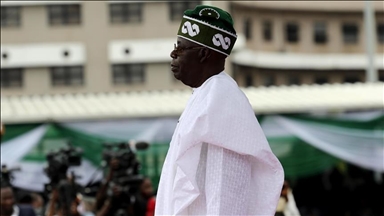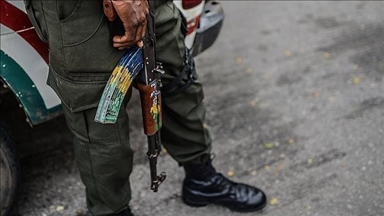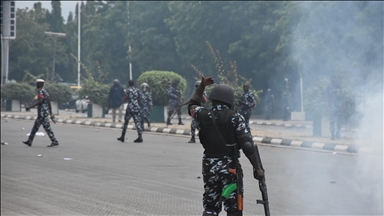
LAGOS, Nigeria
Promises of security, economic revival, and jobs dominate Nigerian campaigns as voting draws closer.
Three of the 18 presidential candidates are crisscrossing the country's 36 states, canvassing for votes from the over 93 million registered voters and other Nigerians in rigorous campaigns.
Nigeria holds presidential and national parliamentary elections on Febr. 25 while elections for state governors and legislature are scheduled to place on March 11, according to the elections umpire, Independent National Electoral Commission (INEC).
Leading candidates Ahmed Tinubu of the ruling All Progressive Congress (APC), opposition's People's Democratic Party (PDP) Atiku Abubakar, and Labour Party's (LP) Peter Obi have been promising to tackle increasing insecurity, high cost of living, create jobs and revive the economy if voted as president.
Tinubu promises to focus on monetary and trade reforms, inclusive growth and employment generation, and increase spending on infrastructure" among others.
Atiku, on the other hand, dwells on "privatization of the economy for the prosperity of the people," a program he championed as the country's vice president and Chairman of Nigeria's economic council (1999-2007).
For Obi, it is a promise of the economy driven by private sector participation" and "agriculture as revenue earnings. All candidates emphasized their commitments to these plans in their campaigns on Tuesday and Wednesday.
But some Nigerians like Samaila Nuhu, Tijjani Yusuf, and Dupe Adewole believe the promises are common and vague.
"They sound good, but their promises are common," Dupe Adewole, a petty trader in Lagos, told Anadolu.
Nuhu, a cab driver in Abuja, echoed this view, calling on Nigerians to look closely at the candidates' promises.
Dauda, an economist and university teacher, said though these promises may not be vague, the candidates failed to tell Nigerians how they plan to address other indices, including debt profile, power, and poor infrastructure that brought the economy to its current state.
"The presidential candidates appear to shy away from how they intend to address this high debt burden, other economic problems," he told Anadolu.
Nigeria's debt profile has risen to N11 trillion naira ($24.2 billion) in three years though inflation dropped slightly to 21.34% from 21.47% in the last 17 years.
Anadolu Agency website contains only a portion of the news stories offered to subscribers in the AA News Broadcasting System (HAS), and in summarized form. Please contact us for subscription options.






